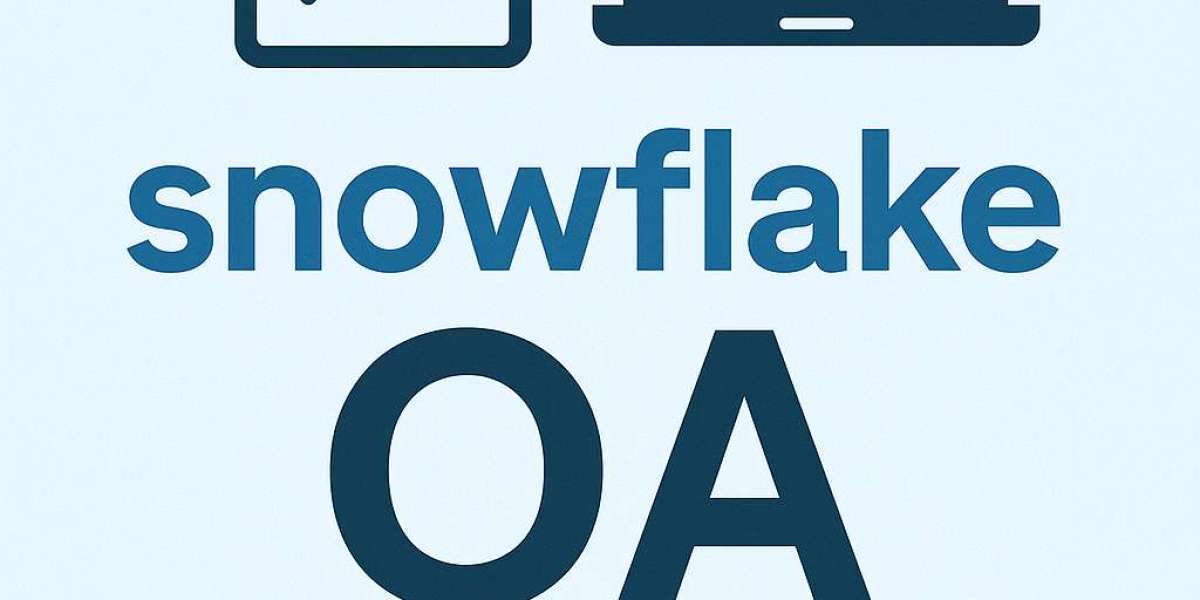If you're gearing up for a tech career and applying to Snowflake, you’ve likely heard of the Snowflake OA (Online Assessment). This critical step in the hiring process evaluates your technical skills, problem-solving ability, and coding efficiency. In this post, we’ll dive into what the Snowflake OA includes, how you can prepare effectively, and where to find top resources that can help you succeed.
What Is the Snowflake OA and Why Does It Matter?
The Snowflake OA is typically the first major hurdle for software engineering and data-focused roles at Snowflake. Whether you're applying for an internship or a full-time position, this timed assessment will test your ability to write clean, optimal code under pressure.
You can expect questions that focus on:
Algorithms and data structures
Time and space complexity
Problem-solving using languages like Python, Java, or C++
SQL-based tasks in some cases, depending on the role
Performance in this OA often determines whether you proceed to the next round, which may include technical interviews or system design challenges.
How to Ace the Snowflake OA
Cracking the Snowflake OA isn’t just about coding—it's about preparation, practice, and time management. Here’s how to maximize your chances of success.
1. Master the Fundamentals
Before jumping into coding problems, make sure your basics are solid. This includes:
Arrays, Linked Lists, Trees
Graphs, Stacks, and Queues
HashMaps and HashSets
Recursion and Dynamic Programming
Spend time understanding not just how to implement these data structures, but also when and why to use them.
2. Practice Snowflake OA-Style Questions
The best way to prepare is by practicing the actual type of questions asked in the snowflake oa. LeetCode, HackerRank, and Codeforces are excellent platforms, but they can be generic.
For focused prep, check out ProgramHelp’s Snowflake OA Preparation Guide — a hand-curated collection of Snowflake OA-style problems, test insights, and strategies directly from successful candidates.
3. Time Yourself and Simulate Real Conditions
Treat your practice sessions like the real deal. Use a timer, eliminate distractions, and simulate exam-like conditions. Learn to manage your time well across multiple problems. Practice debugging quickly, as many candidates lose precious minutes on syntax errors or logical slips.
4. Don't Ignore SQL and System Knowledge
While not always included, some Snowflake OA assessments include SQL or database-related questions. Since Snowflake is a data platform, knowing the basics of querying, optimization, and even cloud concepts (AWS, Azure, etc.) can be an added bonus.
5. Study Real Candidate Experiences
Another highly valuable approach is reviewing detailed experiences of those who’ve already taken the Snowflake OA. Understanding what types of questions they encountered, how they tackled them, and what feedback they received can offer clarity.
Visit ProgramHelp.net’s Snowflake OA Resource Hub to explore detailed breakdowns, interview timelines, and topic-wise preparation strategies shared by real applicants.
Common Mistakes to Avoid in the Snowflake OA
Even strong candidates can falter due to small mistakes. Avoid the following:
Overcomplicating problems: Keep your solutions simple and readable. Avoid overengineering.
Neglecting edge cases: Always test your code against boundary conditions like empty inputs, negative values, or large data sizes.
Not reading the prompt carefully: Time pressure can lead to misinterpreting what’s actually being asked. Slow down for the first read-through.
Skipping dry runs: Run your code with sample inputs before submission. A quick dry run can catch obvious logic errors.
Recommended Study Plan for the Snowflake OA
If you have 3–4 weeks before the assessment, here’s a compact prep plan:
Week 1 – Revisit DSA fundamentals. Practice 10–15 problems on easy/medium difficulty.
Week 2 – Begin solving mixed problems (medium to hard). Simulate 2 full-length OAs.
Week 3 – Target Snowflake-specific questions via ProgramHelp. Focus on time efficiency and error reduction.
Week 4 – Revise key concepts. Focus on confidence-building. Do 1–2 mock tests.
Why Use ProgramHelp.net for Snowflake OA Prep?
If you want your preparation to be sharp, relevant, and up-to-date, ProgramHelp.net offers an excellent edge. Unlike general-purpose platforms, it features:
Real OA questions from previous years
Detailed breakdowns with sample answers
Strategy guides for different difficulty levels
Regularly updated with community-submitted insights
Many successful candidates have credited ProgramHelp for helping them stand out in the snowflake oa and land interviews with top-tier recruiters.
Final Thoughts
The Snowflake OA is challenging—but with the right mindset and preparation, you can absolutely succeed. Focus on mastering the fundamentals, practicing regularly under timed conditions, and learning from others who’ve done it before. Most importantly, don’t treat it like just another test—treat it as your opportunity to shine in front of one of the world’s fastest-growing tech companies.
Explore more in-depth resources at ProgramHelp.net’s Snowflake OA Guide and take your prep to the next level today.








